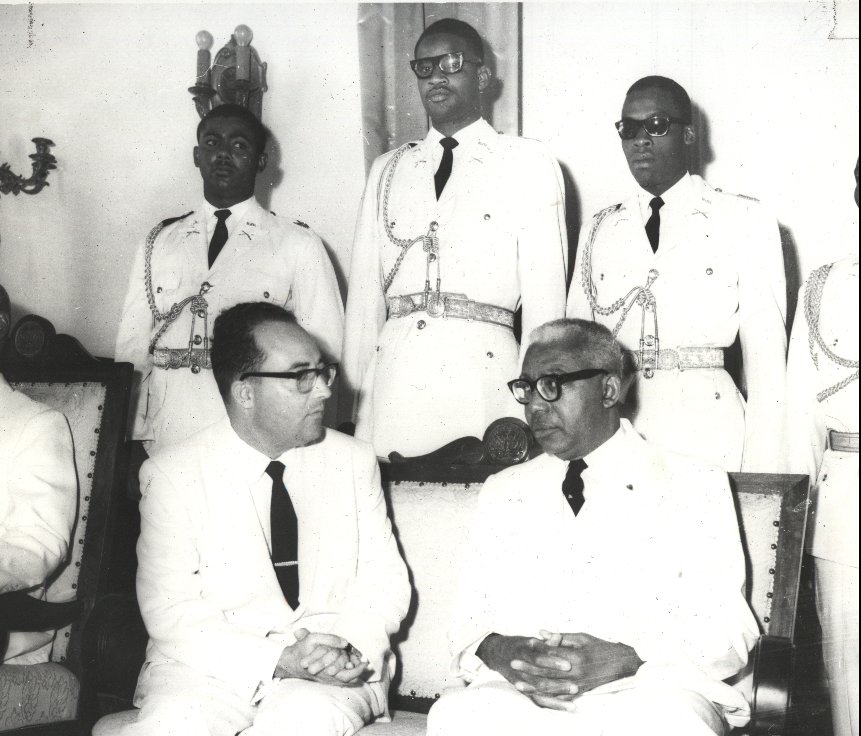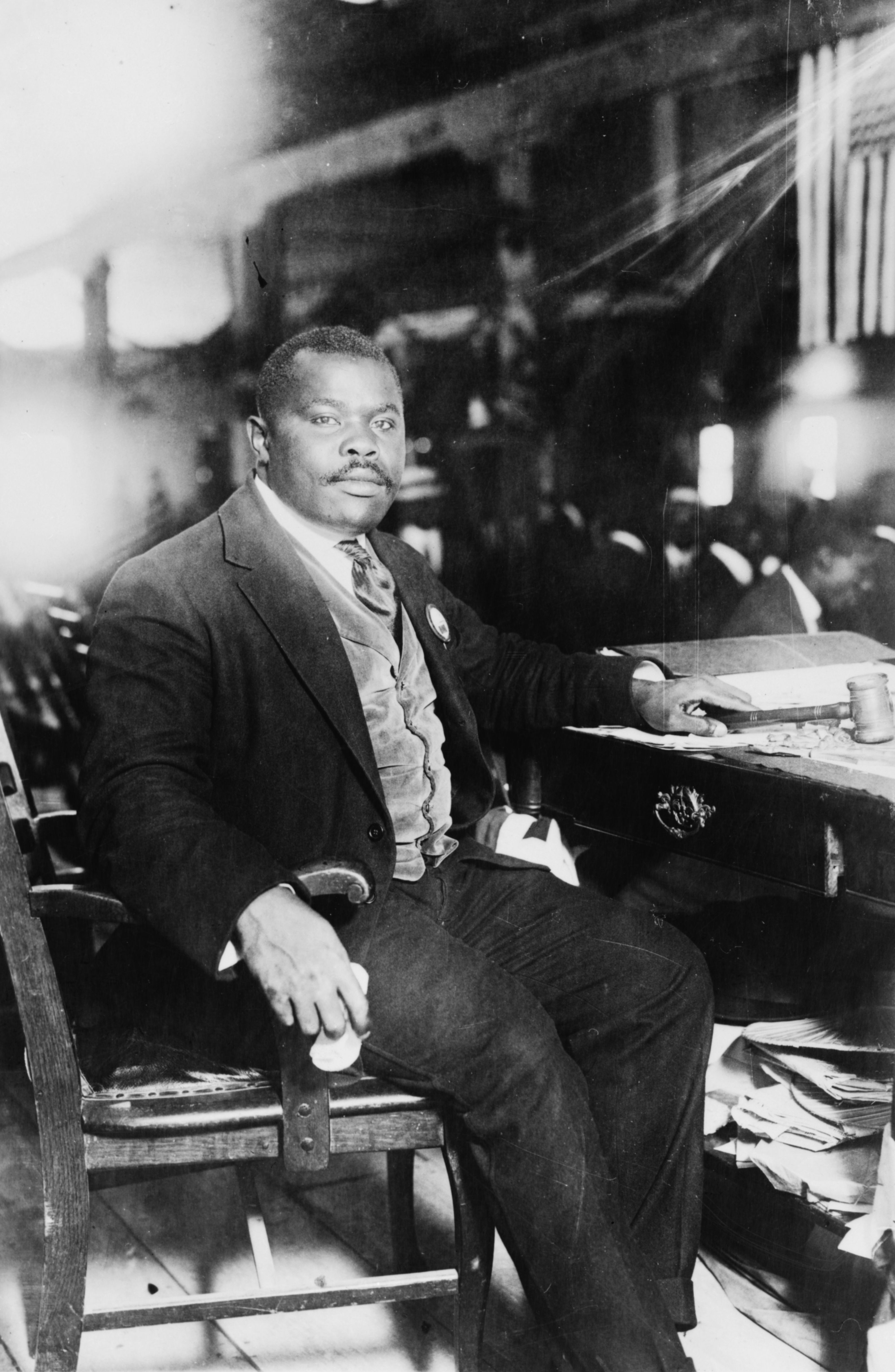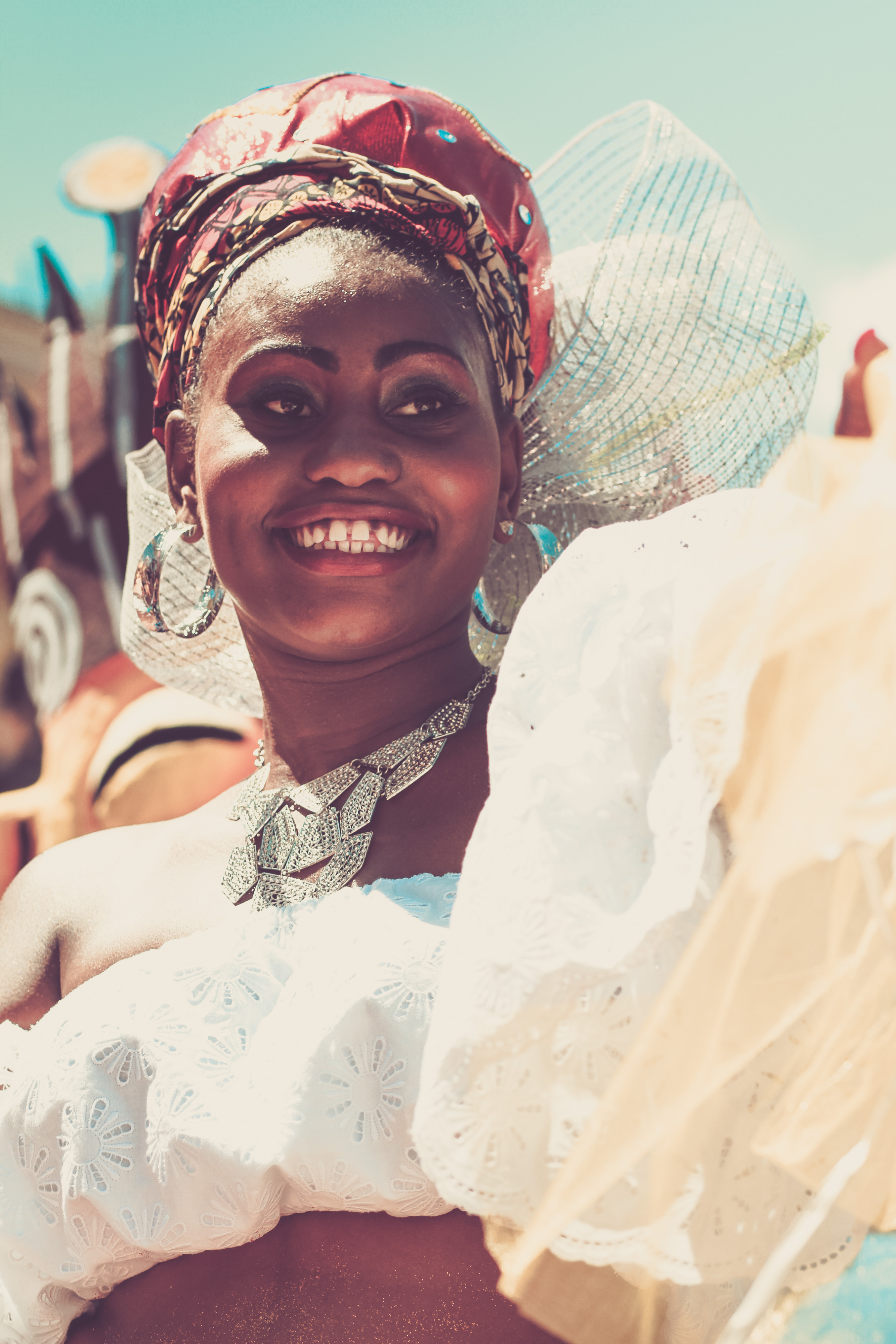|
Jean‑Claude Duvalier
Jean-Claude Duvalier (; 3 July 19514 October 2014), nicknamed "Baby Doc" (, ), was a Haitian dictator who held the presidency of Haiti from 1971 until he was overthrown by a popular uprising in February 1986. He succeeded his father François "Papa Doc" Duvalier as the ruler of Haiti after his death in 1971. After assuming power, he introduced cosmetic changes to his father's regime and delegated much authority to his advisors. Thousands of Haitians were tortured and killed, and hundreds of thousands fled the country during his presidency. He maintained a notoriously lavish lifestyle (including a state-sponsored US$2million wedding in 1980) while poverty among his people remained the most widespread of any country in the Western Hemisphere. Relations with the United States improved after Duvalier's ascension to the presidency, and later deteriorated under the Carter administration, only to normalize under Ronald Reagan due to the strong anti-communist stance of the Duvaliers. Re ... [...More Info...] [...Related Items...] OR: [Wikipedia] [Google] [Baidu] |
François Duvalier
François Duvalier (; 14 April 190721 April 1971), also known as Papa Doc, was a Haiti, Haitian politician and Haitian Vodou, Vodouisant who served as the president of Haiti from 1957 until his death in 1971. He was elected president in the 1957 Haitian general election, 1957 general election on a populist and black nationalist platform. After thwarting July 1958 Haitian coup attempt, a military coup d'état in 1958, his regime rapidly became more autocratic and despotic. An undercover government death squad, the Tonton Macoute (), indiscriminately tortured or killed Duvalier's opponents; the Tonton Macoute was thought to be so pervasive that Haitians became highly fearful of expressing any form of dissent, even in private. Duvalier further sought to solidify his rule by incorporating elements of Haitian mythology into a personality cult. Prior to his rule, Duvalier graduated from the Graduate School of Public Health of the University of Michigan on a scholarship that was mean ... [...More Info...] [...Related Items...] OR: [Wikipedia] [Google] [Baidu] |
Ronald Reagan
Ronald Wilson Reagan (February 6, 1911 – June 5, 2004) was an American politician and actor who served as the 40th president of the United States from 1981 to 1989. He was a member of the Republican Party (United States), Republican Party and became an important figure in the American conservative movement. Presidency of Ronald Reagan, His presidency is known as the Reagan era. Born in Illinois, Reagan graduated from Eureka College in 1932 and was hired the next year as a sports broadcaster in Iowa. In 1937, he moved to California where he became a well-known film actor. During his acting career, Reagan was president of the Screen Actors Guild twice from 1947 to 1952 and from 1959 to 1960. In the 1950s, he hosted ''General Electric Theater'' and worked as a motivational speaker for General Electric. During the 1964 United States presidential election, 1964 presidential election, Reagan's "A Time for Choosing" speech launched his rise as a leading conservative figure. After b ... [...More Info...] [...Related Items...] OR: [Wikipedia] [Google] [Baidu] |
Censorship
Censorship is the suppression of speech, public communication, or other information. This may be done on the basis that such material is considered objectionable, harmful, sensitive, or "inconvenient". Censorship can be conducted by governments and private institutions. When an individual such as an author or other creator engages in censorship of their own works or speech, it is referred to as ''self-censorship''. General censorship occurs in a variety of different media, including speech, books, music, films, and other arts, Newspaper, the press, radio, television, and the Internet for a variety of claimed reasons including national security, to control obscenity, pornography, and hate speech, to protect children or other vulnerable groups, to promote or restrict political or religious views, and to prevent Defamation, slander and Defamation, libel. Specific rules and regulations regarding censorship vary between Legal Jurisdiction, legal jurisdictions and/or private organiza ... [...More Info...] [...Related Items...] OR: [Wikipedia] [Google] [Baidu] |
Political Prisoner
A political prisoner is someone imprisoned for their political activity. The political offense is not always the official reason for the prisoner's detention. There is no internationally recognized legal definition of the concept, although numerous similar definitions have been proposed by various organizations and scholars, and there is a general consensus among scholars that "individuals have been sanctioned by legal systems and imprisoned by political regimes not for their violation of codified laws but for their thoughts and ideas that have fundamentally challenged existing power relations". The status of a political prisoner is generally awarded to individuals based on the declarations of non-governmental organizations like Amnesty International, on a case-by-case basis. While such statuses are often widely recognized by the international public, they are often rejected by individual governments accused of holding political prisoners, which tend to deny any bias in thei ... [...More Info...] [...Related Items...] OR: [Wikipedia] [Google] [Baidu] |
Playboy (lifestyle)
A playboy lifestyle is the lifestyle of a wealthy man with ample time for leisure, who demonstratively is a '' bon vivant'' and man about town who appreciates the pleasures of the world, especially the company of women. The term "playboy" was popular in the early to mid-20th century and is sometimes used to describe a conspicuous womanizer. Development Initially the term was used in the eighteenth century for boys who performed in the theatre, and later it appears in the 1888 Oxford Dictionary to characterize a person with money who is out to enjoy himself. link broken June 2015 By the end of the nineteenth century it also implied the connotations of "gambler" and "musician". By 1907, in J. M. Synge's comedy '' The Playboy of the Western World'', the term had acquired the notion of a womanizer. According to Shawn Levy, the term reached its full meaning in the interwar years and early post WWII years. Postwar intercontinental travel allowed playboys to meet at international ... [...More Info...] [...Related Items...] OR: [Wikipedia] [Google] [Baidu] |
Luckner Cambronne
Luckner Cambronne (30 October 193024 September 2006) was a high-ranking political figure in François Duvalier's regime in Haiti. Cambronne was born the son of a poor preacher and had a career as a bank teller. His alliance with François Duvalier, the Haitian politician who became President of Haiti, led to Cambronne's rising to the number two position in power. In his political career, Cambronne started out as a messenger for Duvalier. After developing a reputation for enforcement and cruelty, he quickly rose in his administration. He was appointed Minister of the Interior and National Defense under Duvalier. Cambronne became Duvalier's second in command and head of his fearsome private militia, popularly known as the ''Tonton Macoutes''. Cambronne's reign was characterized by extensive embezzlement: the use of public funds for his personal businesses and enterprises. As head of the ''Tonton Macoutes'', Cambronne led a campaign of state terrorism against all opposi ... [...More Info...] [...Related Items...] OR: [Wikipedia] [Google] [Baidu] |
Institution Saint-Louis De Gonzague
An institution is a humanly devised structure of rules and norms that shape and constrain social behavior. All definitions of institutions generally entail that there is a level of persistence and continuity. Laws, rules, social conventions and norms are all examples of institutions. Institutions vary in their level of formality and informality. Institutions are a principal object of study in social sciences such as political science, anthropology, economics, and sociology (the latter described by Émile Durkheim as the "science of institutions, their genesis and their functioning"). Primary or meta-institutions are institutions such as the family or money that are broad enough to encompass sets of related institutions. Institutions are also a central concern for law, the formal mechanism for political rule-making and enforcement. Historians study and document the founding, growth, decay and development of institutions as part of political, economic and cultural history. Definit ... [...More Info...] [...Related Items...] OR: [Wikipedia] [Google] [Baidu] |
Black Nationalism
Black nationalism is a nationalist movement which seeks representation for Black people as a distinct national identity, especially in racialized, colonial and postcolonial societies. Its earliest proponents saw it as a way to advocate for democratic representation in culturally plural societies or to establish self-governing independent nation-states for Black people. Modern Black nationalism often aims for the social, political, and economic empowerment of Black communities within white majority societies, either as an alternative to assimilation or as a way to ensure greater representation and equality within predominantly Eurocentric cultures. As an ideology, Black nationalism encompasses a diverse range of beliefs which have variously included forms of economic, political and cultural nationalism, or pan-nationalism. It often overlaps with, but is distinguished from, similar concepts and movements such as Pan-Africanism, Ethiopianism, the back-to-Africa move ... [...More Info...] [...Related Items...] OR: [Wikipedia] [Google] [Baidu] |
Afro-Haitians
Afro-Haitians or Black Haitians (; ) are Haitians of the African diaspora. They form the largest racial group in Haiti and together with other Afro-Caribbean groups, the largest racial group in the region. The majority of Afro-Haitians are descendants of enslaved Africans brought to the island by Spanish Empire, Spanish Empire and French colonial empires, French Colonial Empire to work on plantations. Since the Haitian Revolution, Afro-Haitians have been the largest racial group in the country, accounting for 95% of the population in the early 21st century. The remaining 5% of the population is made up of mixed persons (mixed African and European descent) and other minor groups (European, Arab, and Asian descent). Haitian nationality History The Island of Ayiti was inhabited by the Arawak Peoples: Taino, Ciguayo and the Ciboney, Siboney. Italian explorer Christopher Columbus sighted the Island on 6 December 1492. He named it La Isla Española ("The Spanish Island"), late ... [...More Info...] [...Related Items...] OR: [Wikipedia] [Google] [Baidu] |
Mulatto Haitians
Mulatto (, ) is a term in Haiti that is historically linked to Haitians who are born to one white parent and one black parent, or two mulatto parents. People of mulatto or white descent constitute a minority of 5 percent of the Haitian population. See also * Affranchi * Gens de couleur * Free people of color * Afro-Haitians * White Haitians * Marabou * Mulatto * Passing (racial identity) * Creole peoples Creole peoples may refer to various ethnic groups around the world. The term's meaning exhibits regional variations, often sparking debate. Creole peoples represent a diverse array of ethnicities, each possessing a distinct cultural identity tha ... References and footnotes {{Haitian people Ethnic groups in Haiti Mulatto Multiracial affairs in the Caribbean People from Saint-Domingue Person of color ... [...More Info...] [...Related Items...] OR: [Wikipedia] [Google] [Baidu] |
Transparency International
Transparency International e.V. (TI) is a German registered association founded in 1993 by former employees of the World Bank. Based in Berlin, its nonprofit and non-governmental purpose is to take action to combat global corruption with civil societal anti-corruption measures and to prevent criminal activities arising from corruption. Its most notable publications include the Global Corruption Barometer and the Corruption Perceptions Index. TI serves as an umbrella organization. From 1993 to today, its membership has grown from a few individuals to more than 100 national chapters, which engage in fighting perceived corruption in their home countries. TI is a member of G20 Think Tanks, UNESCO Consultative Status, United Nations Global Compact, Sustainable Development Solutions Network and shares the goals of peace, justice, strong institutions and partnerships of the United Nations Sustainable Development Group (UNSDG). TI is a social partner of Global Alliance in Managemen ... [...More Info...] [...Related Items...] OR: [Wikipedia] [Google] [Baidu] |
Embezzlement
Embezzlement (from Anglo-Norman, from Old French ''besillier'' ("to torment, etc."), of unknown origin) is a type of financial crime, usually involving theft of money from a business or employer. It often involves a trusted individual taking advantage of their position to steal funds or assets, most commonly over a period of time. Versus larceny Embezzlement is not always a form of theft or an act of stealing ''per se'', since those definitions specifically deal with taking something that does not belong to the perpetrators. Instead, embezzlement is, more generically, an act of deceitfully secreting assets by one or more persons that have been ''entrusted'' with such assets. The persons entrusted with such assets may or may not have an ownership stake in such assets. Embezzlement differs from larceny in three ways. First, in embezzlement, an actual '' conversion'' must occur; second, the original taking must not be trespassory, and third, in penalties. To say that the ... [...More Info...] [...Related Items...] OR: [Wikipedia] [Google] [Baidu] |







